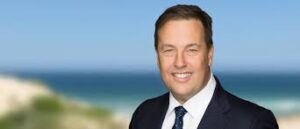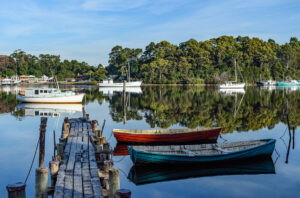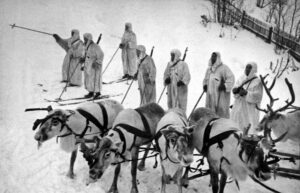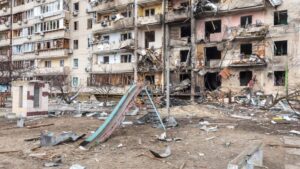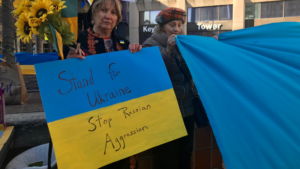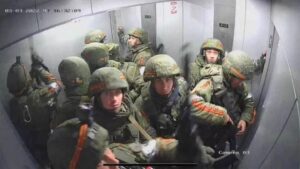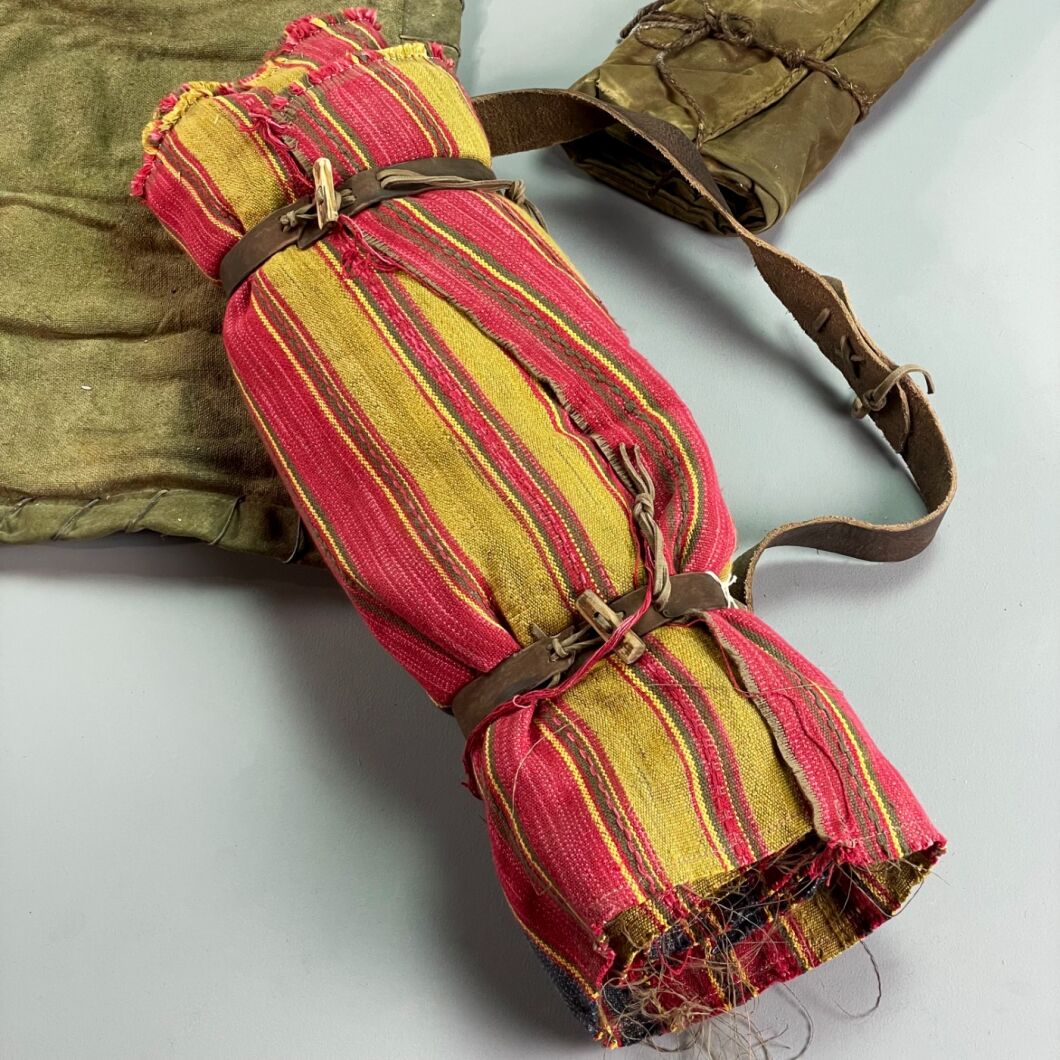
I thought I would relate a story from India when we were about to board the train from New Delhi to Himachal Pradesh. It was a cold winter’s night, and my wife pointed out a puppy shivering on the platform. It had been a difficult night for her, because we had been assigned what was called “first class” but in fact the compartment involved palliasses and drunken fellow travellers. My wife in all innocence had boarded the train, and suddenly found that this was far removed from our interpretation of “first class”. She was lucky to escape, and by a mixture of aggression and cajolery, I was able to change our tickets to sleeper class. This was the actual first class, and one of the advantages was that this carriage had a carriage attendant. Because of the need for the change in our ticketing, we were among the last to board the train.
My wife mentioned to the carriage attendant that there had been a “poor little dog freezing on the platform” (it was, after all, midwinter and 3.00 am), and I had gone into the normal over-reaction of a doctor, “don’t touch the dog, rabies … blah, blah, blah”. Oblivious to my warning, she pointed it out to the carriage attendant. We then went to our compartment. The train was pulling out from the station, and my wife scanned the platform. The puppy was not there; she hoped it had scampered off to find a warmer place.
The journey was well underway when the carriage attendant appeared and beckoned us to come to his den at the end of the carriage. There, nestling on a blanket in a box, was the little dog. The carriage attendant had heeded my wife’s implicit wish and rescued the little dog.
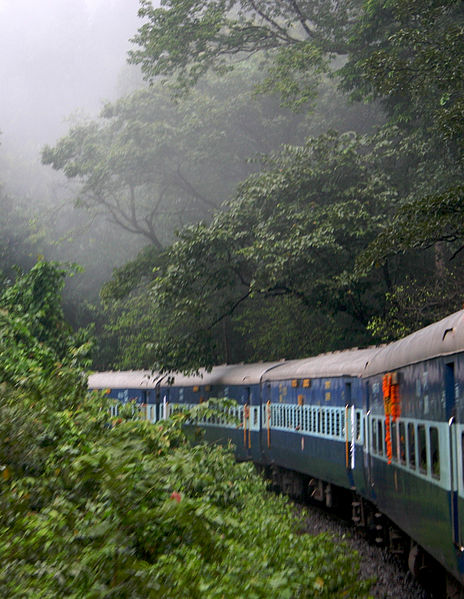
But that was not all, some days later, when we were returning from Himachal Pradesh, we boarded the train for New Delhi. Same carriage. Same smiling carriage attendant. Same little dog, still in his comfortable box. He was one of the most well travelled dogs – having been to Kolkata and back. He still seemed very happy. He did not have rabies. On reflection, I was the one who had been frothing at the mouth. My wife had authored an example of the goodness of some our fellow humans. It is a nice story to start off this blog.
Blind in One Eye, Horatio. You are Kidding Me!
“China is the largest trade partner of a long and growing list of countries. Very few have the wealth and natural resources that protected Australia, the “lucky” country. Even so, many are studying the lessons of Australia’s escape from China’s grip”. The Economist 27 May
It may be strange heading for this observation, which takes its inspiration from Donald Horne’s inspired observation about Australia as “the lucky country”. This succinct note at the end of an article entitled “Lucky for Some” conceals a resource rich Australia, which is rotting under a mixture of hedonism, hypocrisy, and just plain greed.
This long, drawn-out, high risk defamation case brought by Roberts-Smith strikes at the cabal which has been allowed to get away with massive expenditure on a War Memorial. Against this the Brereton Report has found evidence of 39 murders of civilians and prisoners by (or at the instruction of) members of the Australian special forces. The full Report findings have yet to be to be released.
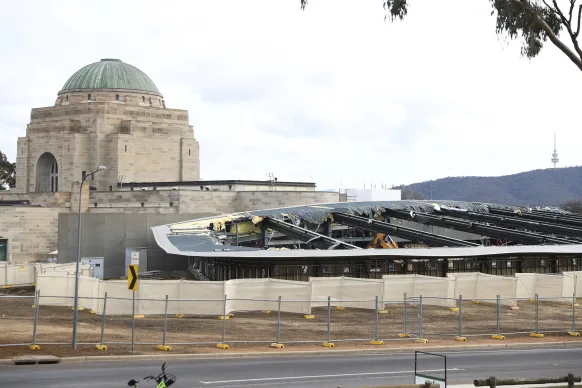
Coupled with unnecessarily expensive alteration to an already ugly building, the Canberra War Memorial should instead be modest in keeping with remembering the dead but not glorifying war – and certainly not turning it into a defence force theme park funded by us mug taxpayers. Given the extravagant eulogising of Roberts-Smith in the War Memorial display, the protected defence force officer species has now given the Parliament a headache.
Anybody lost in war games is an unnecessary life lost. Australia, like most countries, rationalises loss of life and the attendant destruction in a quasi-religious model where remembrance and grief are locked together with a sprinkle of selflessness, heroism and a fizz of “mateship”. It is a curious brew which has also underpinned this relentless pursuit of the original Olympic ideal in warpaint – higher, faster, stronger – essentially an expression of the male hormone overlay of civilisation; without the recently added Olympic ideal of “together”, a concession to the need to contain an aggressive interpretation of the three exhortations.
The Chair of the Council of the War Memorial is Kim Beasley. I generally agree with Paul Keating’s assessment of people, but I have always wondered why he had a high regard for the current Chair, while others considered him as a militaristic boofhead nicknamed “Bomber Beazley” when he was Minister of Defence.
The problem is that the ill-considered action of the ageing Kerry Stokes in bankrolling Roberts-Smith’s defamation action has exposed the underbelly of warfare. Over the years, politicians on both sides of politics become enthralled with the toys of war, egged on by senior officers who have learned the art of “obsequious control” over their political masters, whatever their persuasion. Greeting visiting overseas dignitaries with rows of soldiers or archaically-dressed soldiers on horses; gun carriages for the dead monarch – what is it all about? A population being groomed for war?
It is interesting how many of the senior officers have done a stint in the United States, where inevitably they would have been flattered, if not groomed into the world of expensive weapons labelled “born in the USA”.
I remember as a young boy when I was present at some of the family afternoon “soirees”, being brought along by my father as an appendage. Here were the blokes who had been to the war and may have been wrestling with their demons – and now were drinking too much Scotch and regaling one another with wartime anecdotes. They would mention unpopular officers allegedly where the troops shot them in the back when out on the patrol; but they generally reserved their disdain for coloured people in all their derogatory verbiage. I remember one anecdote which was of no consequence except it happened while this particular bloke was serving on New Ireland and could not contain his hilarity when he told the gathering about this native who happened to be sitting under a coconut tree when a coconut had fallen on his head, splitting it open. He could not stop laughing, until the next dark anecdote.
I was socialised with a diet of Boy’s Own heroics. Yet as a small boy I witnessed that many who served and witnessed war at close quarters never talked about it. I had never experienced the horrors of a war where the civilian population was the target, where the most vulnerable were targeted – genocide was a term yet to be firmly established in the vocabulary. I then had never heard of Guernica, where Germany and her allies wiped out the civilian population, a technique they were busily perfecting in preparation for World subjugation, that in fact had been first trialled in German South-West Africa (now Namibia) between 1904 and 1908. We were socialised in believing that war was a test of manhood, almost a jolly affair offering the then rare opportunity for an overseas trip and where atrocities are airbrushed away.
I have lived with a succession of wars, some having more or less effect on my way of life – but the older I have got the more I have marvelled at the underlying bullying aspect of war. Murder the defenceless to win the war. I am not a pacifist, but once my country has gone to war, it always seemed at the sound of a distant drum, the more the casualties mount up, ultimately for nothing.

There is no Memorial to the Unknown Child or Mother … only to the Unknown Soldier – in brackets, male. The toys and their sophistication and cost increases. The industry attracts a species of vermin who call themselves “consultant” – only because they have been previously participants – officers, bureaucrats, politicians, once on the inside but with their heads now in the money trough, occasionally raising their heads to vomit the privileged information gleaned over the years. Years of “schmoozing”, networking, social engagements, bribery have oiled the world of the “defence consultant”. Contracts are handed out, contracts are padded, and up to this point it has been a cosy atmosphere.
But now the Roberts-Smith ill-fated defamation case has blown a hole in this closed world of privilege. The politicians on each side do not know what to do. So many of them, still unashamed, raise their heads out of the trough. Their mates still in positions of influence, those with perspicacity do not want the whole closely-knit world to unravel, yet they know that they cannot initiate many more cover-ups. Not that they will not try.
The litany of misdemeanours of the ruling elite, both Labor and Coalition, as epitomised by the mutual giggling display of Marles and Pyne, illustrates a festering political garbage dump, the stench of which will not be quenched by any diversionary nosegay. What this country needs is a cathartic dose of the Cromwells.
Montana Skies
In 1999 I went to the University of Washington. Although based in Seattle at the time, it also provided medical teaching to undergraduates based, in addition to Washington State, in Alaska, Wyoming, Montana and Idaho, hence the name WWAMI. As I intended visiting Montana in the late Spring of 2005, I asked Dawn De Witt, who had been recruited as the Dean of the Rural Clinical School and Professor and Foundation Chair of Rural Medical Education based in Shepparton (to give her full title) for advice as to where I should go. I had first met Dawn when she was an academic specialist physician at the University of Washington in Seattle. She had a deep interest in education and she was approached by the then Dean of Medicine, Richard Larkins, at the University of Melbourne to take the post. She also had a special attachment to Montana as she had honeymooned there in the Glacier National Park in the far North of the State and spreading across the border into British Columbia.
When I undertook my exploration of the feasibility of rural clinical schools in Australia in 1999, following Seattle I had visited the campuses in Spokane and in Pullman, just across the border from the Idaho campus in Moscow (pronounced mos-COW). Idaho is a State in two parts. There is a well-forested area north of the divide where the coastal rain falls, while the southern part of Idaho is a dry altiplano where Boise, the capital, is located. Idaho was far less wealthy than Washington, and this difference was reflected in the two campuses.
I had wanted then to go to Montana, but ran out of time. Alaska was a long way away and Montana and Wyoming could wait. Montana was visited six years later. By that time the rural clinical program in Australia was in full swing.
On Dawn’s recommendation, one of the local doctors, Ted Scofield, invited us to stay in the small town of Livingston, close to Yosemite and to its massive backdrop of the Rockies. After all, Montana is the land where the wide glacier-cut valleys do in fact reach for for the sky. I realise that beauty can indeed be muted, in shadows cast, grasslands understated – mostly a wide emptiness.
On arrival we were whisked away to watch his daughter play softball against a team in the neighbouring township of Tall Timbers. Tall Timbers, we were informed, had a champion softball team, as they proved that afternoon. Tall Timbers had achieved its brief period of fame when Robert Redford played the lead role in the film Horse Whisperer, which was filmed there.
Livingston remains a series of images of what I had imagined would be a grasslands town, windswept as one would expect of town lying at 1,400 metres above sea level. The buildings dating back to the late nineteenth century were close to the Yellowstone River, which actually ran through the Scofield property where we stayed. At one stage, we tried to have a picnic on the Yellowstone River, but we were defeated by the mosquitos, which were both very large and very assiduous, if that is a euphemism for bloodthirsty.
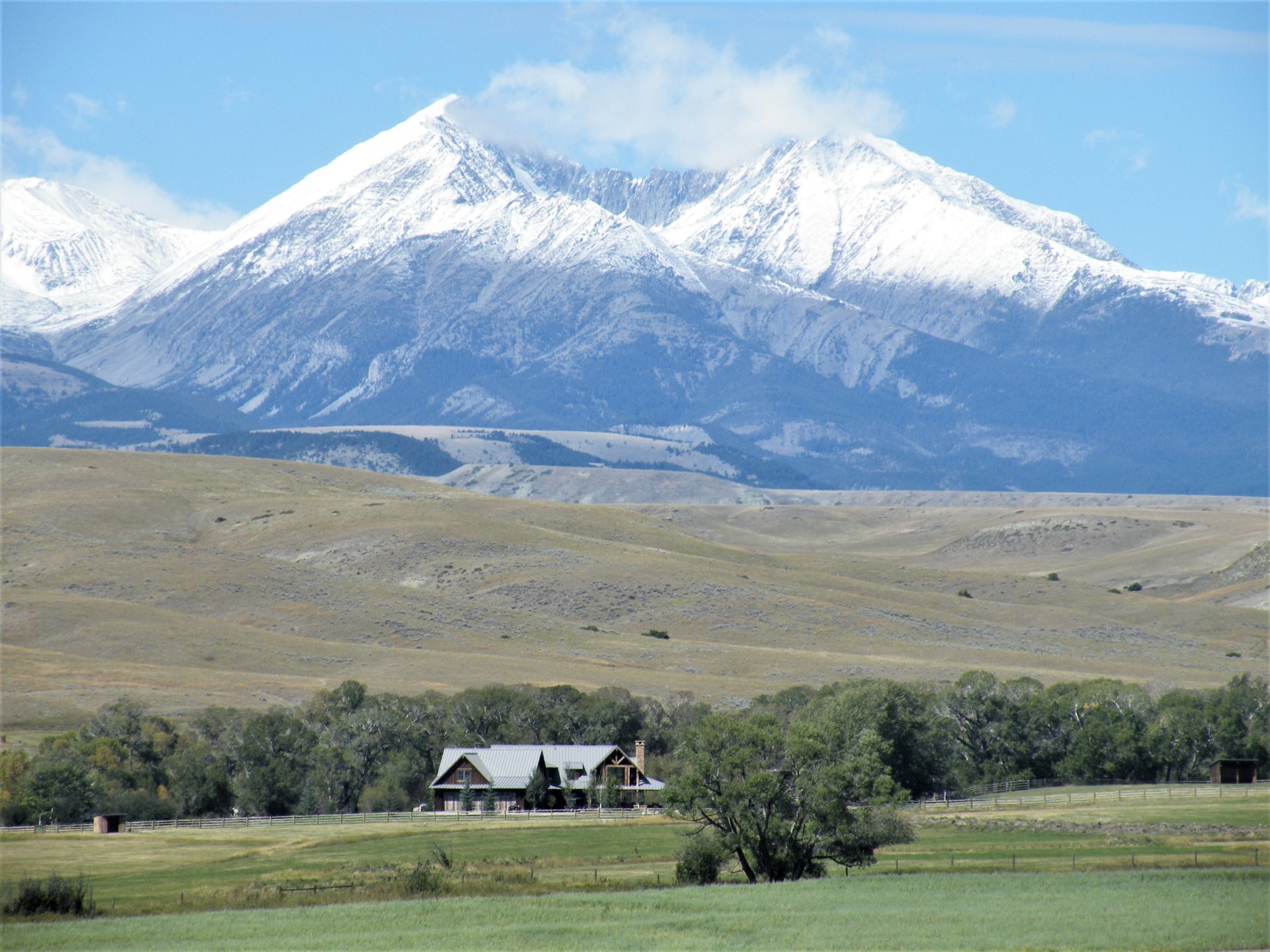
The property overlooked the dramatic Crazies, the Crazy Mountains. Spanning a distance of 32 kms from the Yellowstone River to the pinnacle of Crazy Peak, the terrain rises more than 2,100 metres. The reason for the name of the mountains is obscure; it may be their position. They seemed not to be where the mountains should be, as they lie separate from the Rockies themselves. Nevertheless, the scenery waking up in the morning was in a word – “different”. OK – breathtaking!
Ted was one of the WWAMI teachers, but at that time there were no students in the practice. Nevertheless, we undertook a number of ward rounds at the hospital. He had completed his undergraduate degree at Kalamazoo College, Michigan, then went on to graduate from medical school at Saint Louis in 1979. Given that the population is around 8,000 Livingston seemed to have very adequate medical facilities, but as I have since found out, the area is very popular with many prominent actors and moneyed people who had properties around the town. There is a word to describe those rural areas that do not have a problem recruiting doctors –“resources rich”. Useful to be near ski resorts and in the case of Ted Scofield, hunting. Ted was a keen hunter and his house was festooned with trophies, and on our last morning, we had homemade elk sausages for breakfast.

The Scofields and their children and mother were “Wee Frees”. This segment of the Presbyterian Church traces its roots to 1843 and the struggle of the Scottish church to remain “free” from State interference. In fact they live at the extreme end of the evangelical Protestants, and predictably are against the cultural reforms of same-sex marriage and access to abortion, believing the literal interpretation of the Bible. As we were guests, we steered clear of any discussion, but took part in their mealtime, where everybody held hands while Ted said grace before each meal. Not quite Little House on the Prairie, but where piety is mixed with blood sports. It was a time when Bush was President and the Iraqi war was in full swing, but again not a topic for discussion given that we soon realised that our beliefs were very far apart
They were very hospitable. For instance, they were teetotal, but stocked low alcohol beer which they offered us. We gave a presentation on Australia to the health centre and hospital staff – a slide show centred on a recitation of Dorothea McKellar’s poem “My Country”. It seemed to be well received; they had little knowledge of Australia and our own open spaces.
We did not talk much about teaching because on the ward rounds he was very much the conventional doctor, where teaching was not an easy fit. The traditional country rural medical practitioner is a solitary person, used to treating patients without question. In one instance, I did question the treatment, and he took it in good grace, demonstrating to me more flexibility than I had observed up to that time.
In the end, I do not know what I thought. As I write this reflection, I realise that I learnt more than if I had been involved in conflict. Far apart we may have been in belief, I learnt more than I thought in my sojourn in Livingston without only saying “Dr Scofield, I presume.”
Laura Vall
When I was learning Brazilian Portuguese, one of the more relaxing and attractive ways learning this form of Portuguese was to watch a bossa nova video performed by NOVA, whose lead singer was Laura Vall.

NOVA’s tagline is Born in Brazil, Made in LA. Laura Vall is from Barcelona but moved to LA. Here she had set up this Group with Mike Papagni, a bossa nova and jazz quartet, back in 2011. The quartet with her as the vocalist are David Irelan (guitar), Thomas Hjorth (bass), and Mike Papagni (drums). Since then, they’ve been performing around Los Angeles and I found them and her on YouTube. The signature bossa nova song is The Girl from Ipanema, written in 1962 by Antonio Carlos Jobim with lyrics by Vinicius de Moraes. The singer generally associated with the song was Astrud Gilberto. The Sinatra interpretation is well-known, admittedly at odds with the original lyrics it nevertheless has a certain charm, given he was singing alongside Jobim, the latter accompanying him in Brazilian Portuguese.
In the Portuguese version, the lyrics employ two words for girl, while the title uses “garota” a third word for girl but not used in the song itself. The girl from Ipanema is variously “menina” or “moça”. When I watch her singing the song she was the epitome of all of these plus an element of the vagabond in English – in Portuguese it has a more direct meaning shorn of the street-wise imputation that it has in English.
Whether singing with microphone as her only prop or when shaking a ganza, Vall’s movements are minimal yet sensuous, her voice clarion clear, her voice with a touch of defiance, if not ferocity. Her Brazilian Portuguese is impeccable. To me she is also a beautiful woman. Her accompanying musicians are understated but a perfect backdrop, yet all playing against unspectacular background room – no flashy cut aways to Ipanema beach or elsewhere. Just a beautiful singer in a Los Angeles studio with a great backing trio. The ongoing encouragement to continue learning Portuguese – admittedly now with little practical reason, except to keep the brain active – and listening to Laura Vall.
She is a worthy successor to Astrud Gilberto, who died this week.

The Withered Spring
All over Eastern Massachusetts it’s the same story, with azaleas, forsythia, rhododendrons, and their colleagues underperforming. Where there should be flowers and joy, we have mere leaves, bare stems — and self-doubt.
The disappointing spring bloom is all the more painful because it comes against a backdrop of climate change — not the fault of any one gardener, but rather the collective action of the human species.
Last summer’s drought, the historic arctic blast in early February, the wild swings in temperature — they’re all contributing to the lacklustre Spring.
An eloquent observation in The Boston Globe, which imparts the same message that Rachel Carson made almost two generations ago when she wrote of a countryside before the chemical onslaught, including the now banned DDT.
 Along the roads, laurel, viburnum and alder, great ferns and wildflowers delighted the traveler’s eye through much of the year. Even in winter the roadsides were places of beauty, where countless birds came to feed on the berries and on the seed heads of the dried weeds rising above the snow. The countryside was, in fact, famous for the abundance and variety of its bird life, and when the flood of migrants was pouring through in spring and fall people traveled from great distances to observe them.
Along the roads, laurel, viburnum and alder, great ferns and wildflowers delighted the traveler’s eye through much of the year. Even in winter the roadsides were places of beauty, where countless birds came to feed on the berries and on the seed heads of the dried weeds rising above the snow. The countryside was, in fact, famous for the abundance and variety of its bird life, and when the flood of migrants was pouring through in spring and fall people traveled from great distances to observe them.
Rachel Carson wrote these words in 1962. How goes the ingenuity of us humans to escape the disasters we create?
Mouse Whisper
Ever thought about the three blind mice? The “three blind mice” were the Oxford Martyrs, all Bishops and supporters of the short-lived Queen, Lady Jane Grey. (The Liz Truss nine-day monarch equivalent). Their names were Nicholas Ridley, Hugh Latimer and Thomas Cranmer, accused of plotting against the Roman Catholic Queen Mary I, daughter of Henry VIII. They were tried for heresy in 1555.
Before they were burned at the stake, Latimer was heard to say: Be of good comfort, Master Ridley, and play the man. We shall this day light such a candle, by God’s grace, in England, as I trust shall never be put out.
Strange how “play the man” now has such a different connotation.
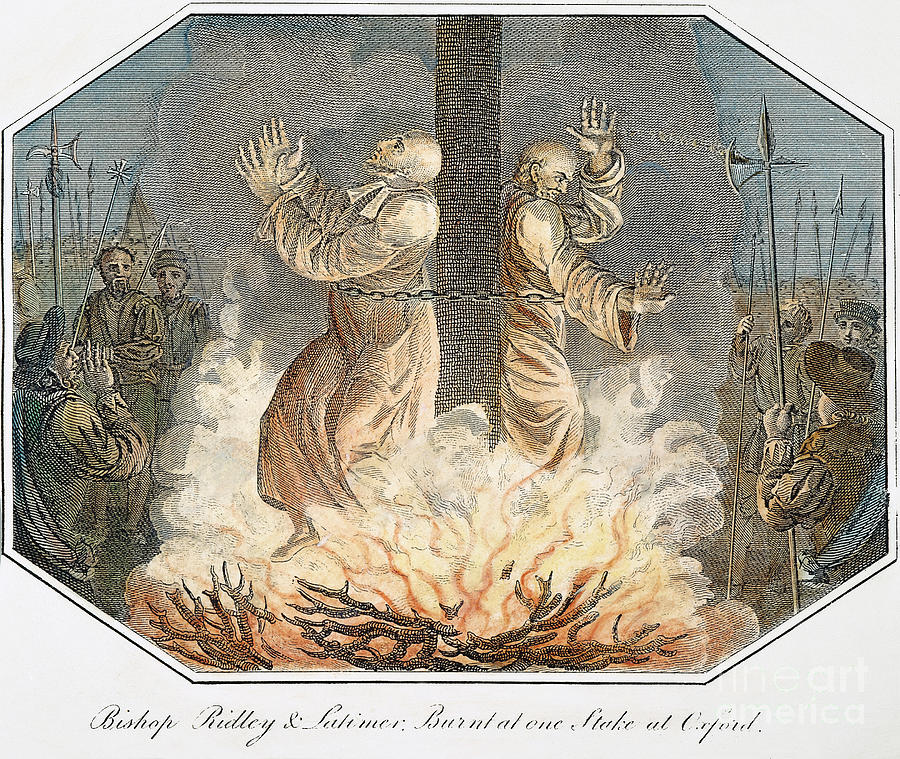

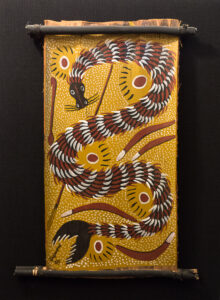
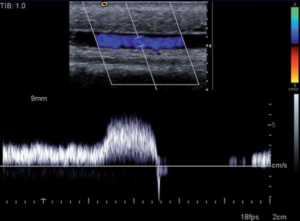
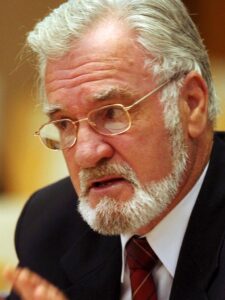
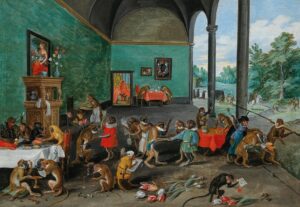
 The value of the bulb during this hectic three period provided a way to extricate oneself from, if not poverty, at least to being able to afford a decent house -only if you sold early. However, given where many of the transactions took place as the author of Tulipomania wrote: “The trade was conducted for the most part in a haze of inebriation.”
The value of the bulb during this hectic three period provided a way to extricate oneself from, if not poverty, at least to being able to afford a decent house -only if you sold early. However, given where many of the transactions took place as the author of Tulipomania wrote: “The trade was conducted for the most part in a haze of inebriation.”
